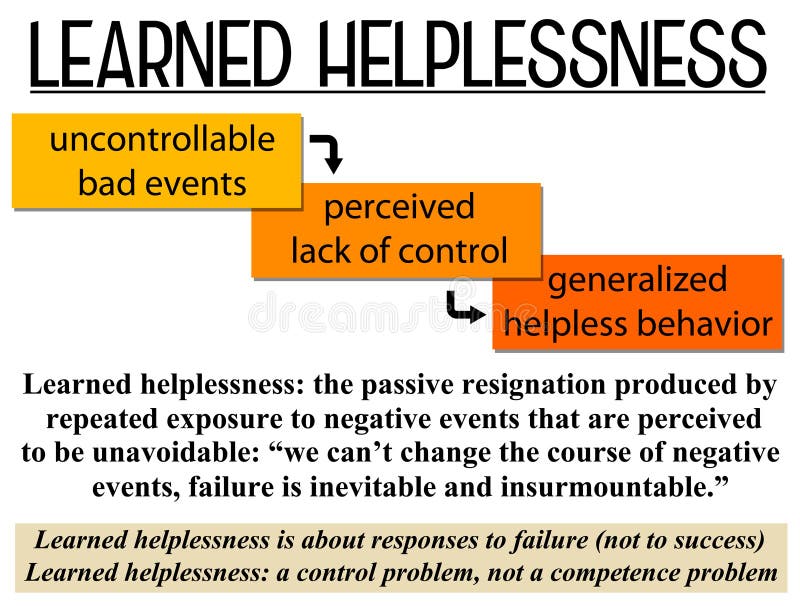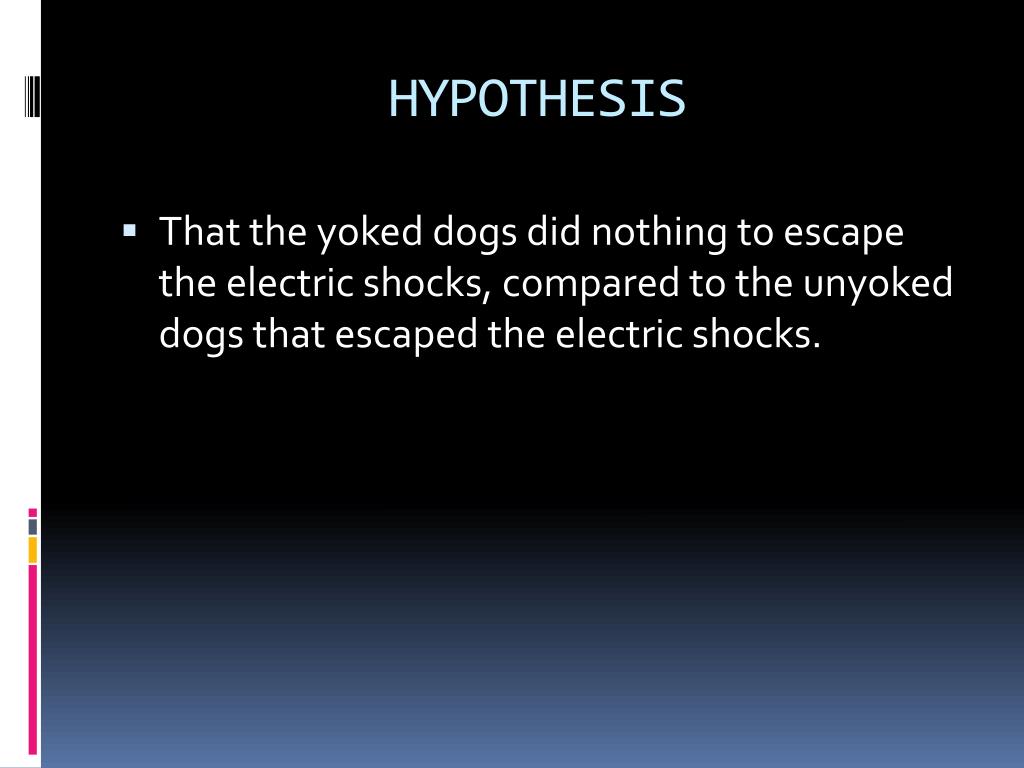Do you interested to find 'helplessness hypothesis'? All the details can be found here.
Table of contents
- Helplessness hypothesis in 2021
- Learned helplessness hypothesis
- Seligman learned helplessness
- Seligman dogs learned helplessness
- Learned helplessness theory suggests that
- Learned helplessness symptoms
- Learned helplessness book
- Hopelessness theory in psychology
Helplessness hypothesis in 2021
 This picture demonstrates helplessness hypothesis.
This picture demonstrates helplessness hypothesis.
Learned helplessness hypothesis
 This picture representes Learned helplessness hypothesis.
This picture representes Learned helplessness hypothesis.
Seligman learned helplessness
 This picture representes Seligman learned helplessness.
This picture representes Seligman learned helplessness.
Seligman dogs learned helplessness
 This picture illustrates Seligman dogs learned helplessness.
This picture illustrates Seligman dogs learned helplessness.
Learned helplessness theory suggests that
 This image demonstrates Learned helplessness theory suggests that.
This image demonstrates Learned helplessness theory suggests that.
Learned helplessness symptoms
 This image representes Learned helplessness symptoms.
This image representes Learned helplessness symptoms.
Learned helplessness book
 This picture shows Learned helplessness book.
This picture shows Learned helplessness book.
Hopelessness theory in psychology
 This image demonstrates Hopelessness theory in psychology.
This image demonstrates Hopelessness theory in psychology.
Are there variations in the theory of Learned helplessness?
i.e. learned helplessness sometimes remains specific to one situation but at other times generalizes across situations. Such variations are not explained by the original theory of learned helplessness, and an influential view is that such variations depend on an individual's attributional or explanatory style.
When was learned helplessness first discovered in humans?
Psychologists first described learned helplessness in 1967 after a series of experiments in animals, and they suggested that their findings could apply to humans. Learned helplessness leads to increased feelings of stress and depression.
What does it mean when an organism has learned helplessness?
In other words, the organism learned that it is helpless in situations where there is a presence of aversive stimuli, has accepted that it has lost control, and thus gives up trying even as changing circumstances offer a method of relief from said stimulus. Such an organism is said to have acquired learned helplessness.
How does learned helplessness lead to stress and depression?
They displayed fewer symptoms of learned helplessness. In addition to these studies, there have been many studies showing how learned helplessness can lead to depression. Learned helplessness also contributes to raising stress levels, reducing the ability of a person to learn new things, and decreasing a person's effort.
Last Update: Oct 2021
Leave a reply
Comments
Ricca
19.10.2021 02:39Piece learned helplessness is best known equally an explanation of depression, studies with both people and animals have mapped out the psychological feature and biological aspects. Basically, if a mortal adopts an optimisti.
Atilio
19.10.2021 05:36The first is data about what testament happen. Solomon at the university of Pennsylvania.
Monalisa
22.10.2021 02:20In that location have been more than studies on optimism in the terminal seven years than in the late twenty. The psychology of optimism and pessimism: theories and research findings.